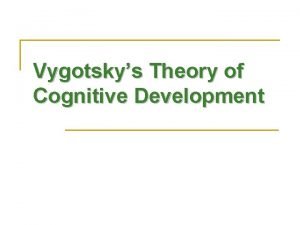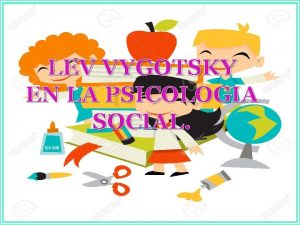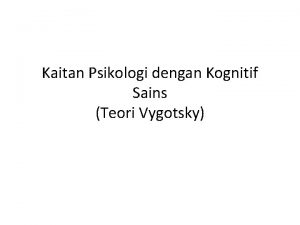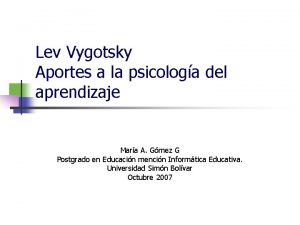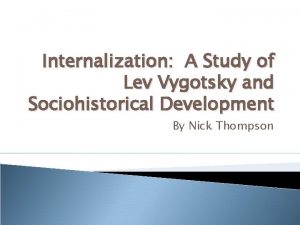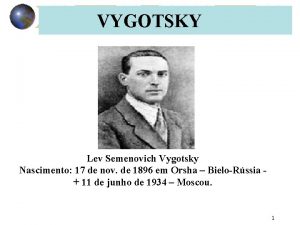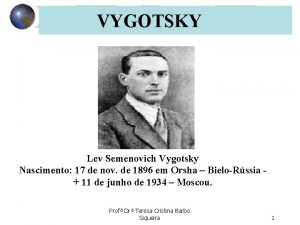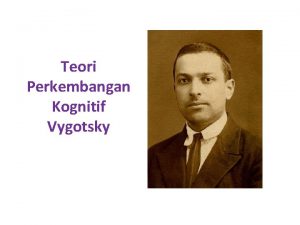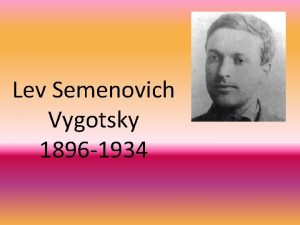Lev Semenovich Vygotsky 18961934 Vygotsky A persons interpersonal









- Slides: 9

Lev Semenovich Vygotsky 18961934

Vygotsky • A person’s interpersonal, or internal processes, have their roots in interactions with others. • Emphasized language and social interaction much more than Piaget – Proposed that developmental progress occurs through discussion and reasoning in a social context (language is a tool use to aid development)

Vygotsky • Soviet Dialectical theory – Contradiction spurs development • Start with one notion (thesis) • Find something that contradicts (antithesis) • Work to resolve contradiction by constructing some new concept that takes both thesis and antithesis into account (synthesis)

Vygotsky’s Stages • From independent genetic roots language and thought begin to merge early in development – Stage 1 (1 st year): Pre-verbal thought and preintellectual speech – Stage 2 (2 nd year): Practical intelligence and syntactic mastery – Stage 3 (2 -4 years): Egocentric speech using symbols as aids/discovering that things have names – Stage 4(4 years to adulthood): inner speech and the growth of verbal thought

Vygotsky’s Position on merging of thought and speech • If children’s language climate is full of “simplistic” or “primitive” language, they will think “simplistically” or “primitively” meaning becomes a unit of verbal thinking thought becomes 4 inner speech. . . some thought is physical rules practical knowledge 3 2 aided by symbols grammatical rules 1 Birth Thought Speech

Vygotsky’s Sociocultural Theory of Cognitive Development • Developed three main developmental ideas: – Internalization – Zone of Proximal Development – Scaffolding

Vygotsky’s Sociocultural Theory of Cognitive Development • Internalization - taking in knowledge observed in a social context. – Language is key to the internalization of complex ideas.

Vygotsky’s Sociocultural Theory of Cognitive Development • Zone of Proximal Development - the range between a child’s level of independent performance and the level of performance a child can reach with assistance.

Vygotsky’s Sociocultural Theory of Cognitive Development • Scaffolding- competent assistance or support, usually provided through mediation of the environment by a parent or teacher, by which cognitive, socioemotional, and behavioral forms of development are facilitated.
